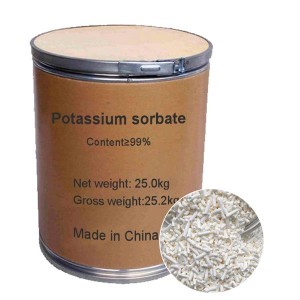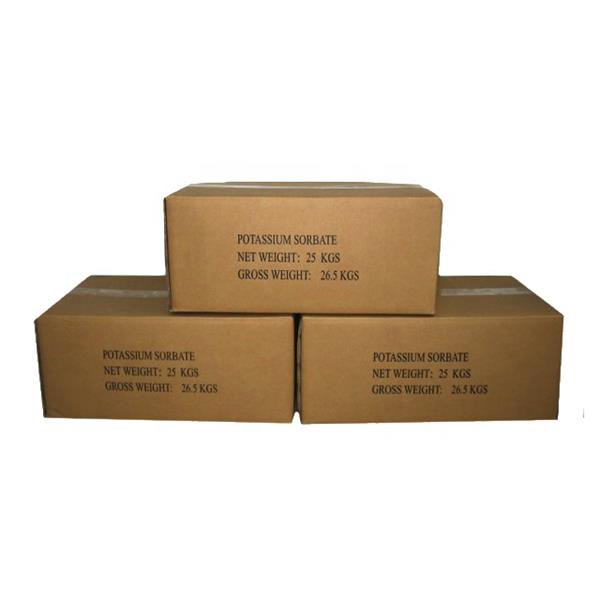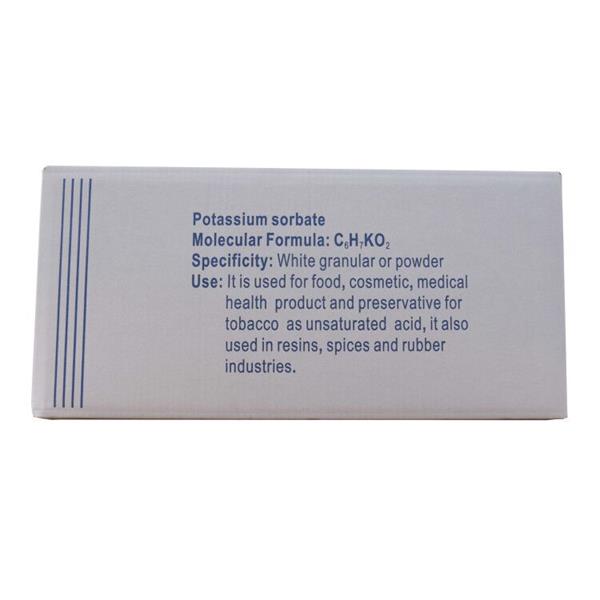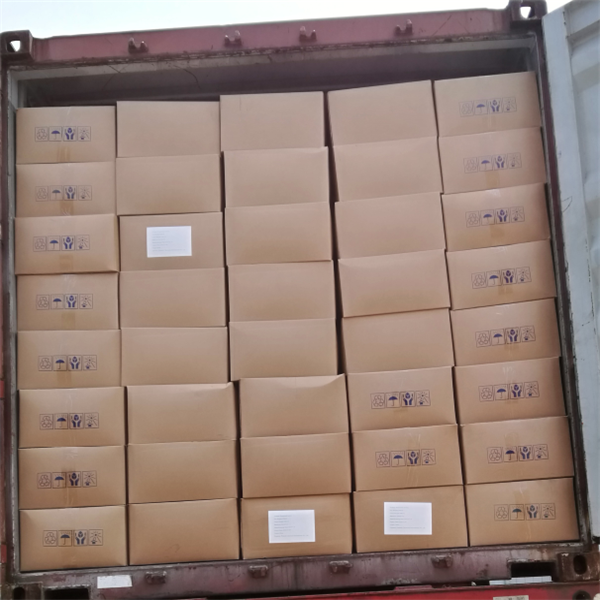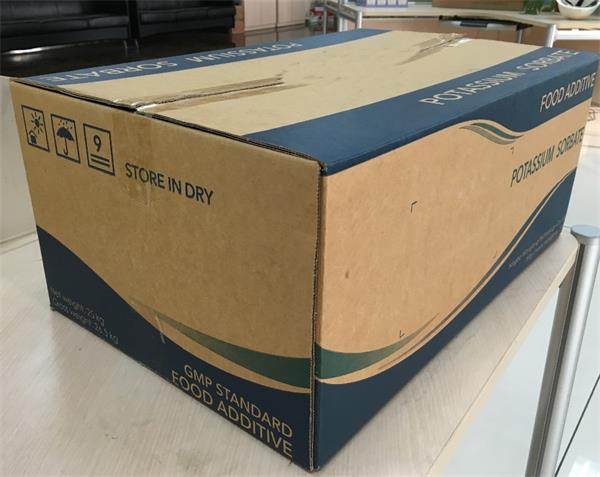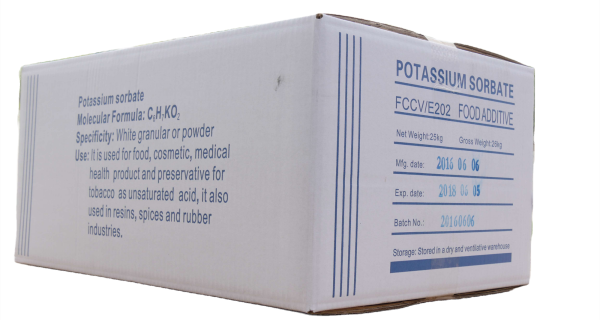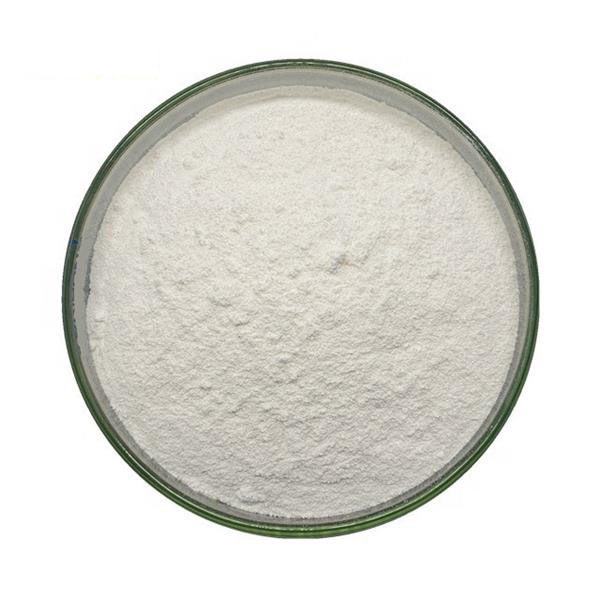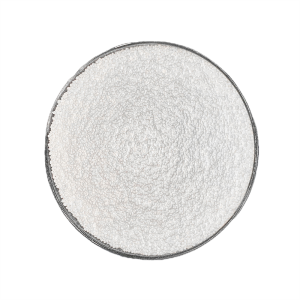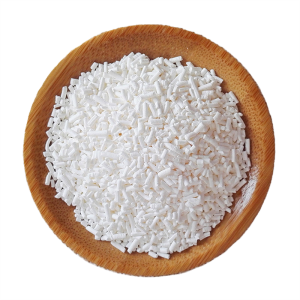Potassium Sorbate
First discovered in the mountain ash tree, potassium sorbate is a variation of sorbic acid, a polyunsaturated fat. As a potassium salt, potassium sorbate is used as a food preservative and is now produced synthetically. This preservative breaks down into water and carbon dioxide in your body, according to the Center for Science in the Public Interest.
If you eat baked goods, canned vegetables, and cheese on a regular basis, then you are likely eating potassium sorbate. In fact, potassium sorbate is a very common chemical added to food as it’s relatively inexpensive and easy to make.
What It's Used For
Yogurt,Cheese,Wine,Dips,Pickles,Dried meats,Soft drinks,Baked goods,Ice cream
Potassium sorbate is used as a preservative in a number of foods, since its anti-microbial properties stop the growth and spread of harmful bacteria and molds. It is used in cheese, baked goods, syrups and jams. It is also used as a preservative for dehydrated foods like jerky and dried fruit, as it does not leave an aftertaste. The use of potassium sorbate increases the shelf life of foods, so many dietary supplements also include it. It is commonly used in wine production because it stops the yeast from continuing to ferment in the bottles.
Food Preservative: Potassium sorbate is used particularly in foods that are stored at room temperature or that are precooked, such as canned fruits and vegetables, canned fish, dried meat, and desserts. It’s also commonly used in food that is prone to mold growth, such as dairy products like cheese, yogurt, and ice cream. Many foods that are not fresh rely on potassium sorbate and other preservatives to keep them from spoiling. In general, potassium sorbate in food is very common.
Winemaking: Potassium sorbate is also commonly used in winemaking, to prevent wine from losing its flavor. Without a preservative, the fermentation process in wine would continue and cause the flavor to change. Soft drinks, juices, and sodas also often use potassium sorbate as a preservative.
Beauty Products: While the chemical is common in food, there are many other potassium sorbate uses. Many beauty products are also prone to mold growth and use the preservative to extend the life of skin and haircare products. It is very likely that your shampoo, hair spray, or skin cream contains potassium sorbate.
First discovered in the mountain ash tree, potassium sorbate is a variation of sorbic acid, a polyunsaturated fat. As a potassium salt, potassium sorbate is used as a food preservative and is now produced synthetically. This preservative breaks down into water and carbon dioxide in your body, according to the Center for Science in the Public Interest.
If you eat baked goods, canned vegetables, and cheese on a regular basis, then you are likely eating potassium sorbate. In fact, potassium sorbate is a very common chemical added to food as it’s relatively inexpensive and easy to make.
1. Column
Package:25KG/CARTON
One 20 feet container can load 13.5TON without pallet
One 20 feet container can load 12tons with pallet
2. Globular
Package:25KG/Carton
One 20 feet container can load 16.8tons without pallet
One 20 feet container can load 15tons with pallet
3.Powder
Package:20KG/Carton
One 20 feet container can load 9.6TONS with pallet
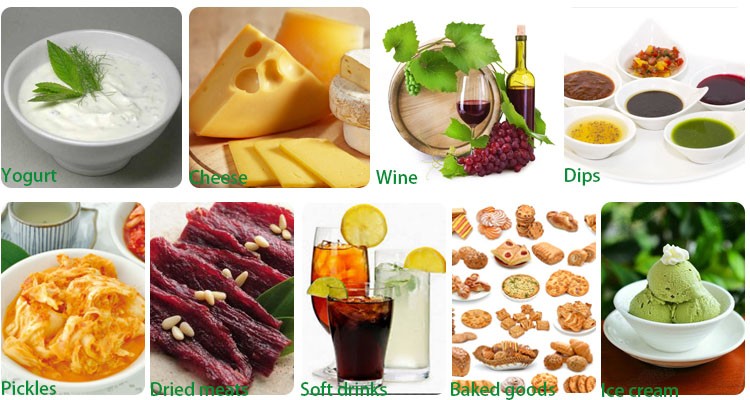
We ensure you fast response,fast service.Emailes will be replied in 12 hours,your questions will be answered in time.
Accoding to the products you ordered.
Usually we provide the packing as 25kg/bag or carton.Of course,if you have special requirements on them,we will according to you .
It should be stored in a dry and ventilating warehouse.Be cautious to keep away from moisture and heat;unloaded with care,so as to avoid the damage.Furthermore,it should be stored separately from poisonous substances.
L/C,T/T
Yes,we can send the free sample to you less 200grams,but you need to pay for the freight charge,when you begin to order,we will return the feight charge back to you.
| Specification | Standard | Test result |
| Identification | UV-Maximum254±2mm | Complied |
| Appearance | White or off white spherical | White spherical |
| Assay (dry basis) | 99.0%-101.0% | 100.0% |
| Melting range | 133-135℃ | 133.2-134.6℃ |
| Loss on drying | Not more than1% | 0.20% |
| PH-Value | 8.5-10.5(10% water solution) | 9.6 |
| Alkalinity (as K2CO3) | Passes test (about 1%) | Complied |
| Acidity (as sorbic acid) | Passes test (about 1%) | Complied |
| Heavy metals (as Pb) | Not more than 0.001% | Complied |
| Arsenic | Not more than 2ppm | Not more than 2ppm |
| Lead | Not more than 2ppm | Not more than 2ppm |
| Sulfate (as SO4) % | Not more than 380ppm | Not more than 380ppm |
| Aldehydes (as for maldehyde) | Not more than 0.1% | Complied |
| Heat resistance | No discoloration after heating 90 minutes at 105℃ |
Logistics picture display
